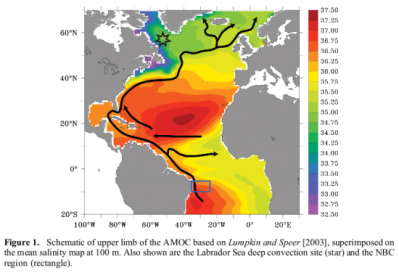Tag: skepticism
Climategate: the failure of scientific integrity in climate science
Al Gore and the silencing of debate
Yesterday I posted a link to a story about Al Gore claiming that any expression of skepticism about global warming is to him no different than racism. Here again is what Gore said,
“There came a time when friends or people you work with or people you were in clubs with — you’re much younger than me so you didn’t have to go through this personally — but there came a time when racist comments would come up in the course of the conversation and in years past they were just natural. Then there came a time when people would say, ‘Hey, man why do you talk that way, I mean that is wrong. I don’t go for that so don’t talk that way around me. I just don’t believe that.’ That happened in millions of conversations and slowly the conversation was won. We have to win the conversation on climate.”
More than at any other time, Gore here has very successfully illustrated the differences between how climate skeptics debate the scientific questions of climate change versus how global warming advocates do it.
» Read more
The science remains uncertain
Two papers published this week by the American Geophysical Union once again indicate that the science of climate change remains exceedingly uncertain. More significantly, the models that try to predict the future of the Earth’s climate continue to appear unreliable, with such large margins of error that it is at this time foolish to make any policy based on their predictions.
The first paper took a close look at the deep water currents in the Atlantic to see if it could track changes to what the authors’ call the Atlantic meridional overturning circulation (AMOC), more generally referred to as the Atlantic conveyor belt. This conveyor belt begins with the sinking of salty dense water in the northeast Atlantic off of Europe and Africa. The deep water current then travels south and into the Indian and Pacific Oceans where it comes to the surface only to flow back to the Atlantic, traveling north along the coast of North America as the Gulf Stream, bringing with it the warm temperatures that make Europe’s climate much warmer than its latitude would normally suggest.
According to most global warming models, higher temperatures should cause the glaciers in the Arctic and Greenland to melt, thereby pouring an increased amount of fresh water into the North Atlantic. This infusion of fresh water is then expected to lower the salinity and density of the Atlantic water, thus preventing it from sinking and thus acting to slow the conveyor belt, and possibly even causing it to shut down. The consequence would be no more Gulf Stream to warm the climate of Europe.
In other words: Disaster! Death! Destruction! All caused by global warming!
Unfortunately for these global warming models, the paper above found no trend at all. The conveyor belt is not slowing, as predicted. To quote the paper’s abstract:
» Read more
Random variations are still too large for climate models
The uncertainty of science: a paper published today in Geophysical Research Letters has concluded that the the long term random variations of the climate, sometimes lasting as long as three or four decades, are large enough to hide any actual changes to the climate. In the quote from the abstract below, the term “random walk” is jargon for a long term random fluctuation having nothing to do with climate change.
This result indicates that the shorter records may not totally capture the random variability of climate relevant on the time scale of civilizations, for which the random walk length is likely to be about 30 years. For this random walk length, the observed standard deviations of maximum temperature and minimum temperature yield respective expected maximum excursions on land of 1.4 and 2.3°C and over the ocean of 0.5 and 0.7°C, which are substantial fractions of the global warming signal.
In other words, it might simply be too soon to be making predictions about the climate, based upon the presently available data.
The uncertainty of science: a paper published today in Geophysical Research Letters has concluded that the the long term random variations of the climate, sometimes lasting as long as three or four decades, are large enough to hide any actual changes to the climate. In the quote from the abstract below, the term “random walk” is jargon for a long term random fluctuation having nothing to do with climate change.
This result indicates that the shorter records may not totally capture the random variability of climate relevant on the time scale of civilizations, for which the random walk length is likely to be about 30 years. For this random walk length, the observed standard deviations of maximum temperature and minimum temperature yield respective expected maximum excursions on land of 1.4 and 2.3°C and over the ocean of 0.5 and 0.7°C, which are substantial fractions of the global warming signal.
In other words, it might simply be too soon to be making predictions about the climate, based upon the presently available data.
More questions about today’s alien fossil story
More questions about today’s alien fossil story.
The questions this article raises jive well with my own doubts. However I find the level of hatred expressed in the comments to be quite disgusting and vile.
More questions about today’s alien fossil story.
The questions this article raises jive well with my own doubts. However I find the level of hatred expressed in the comments to be quite disgusting and vile.

